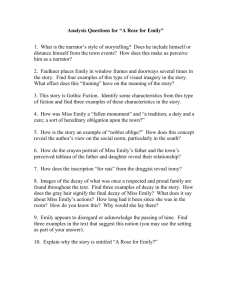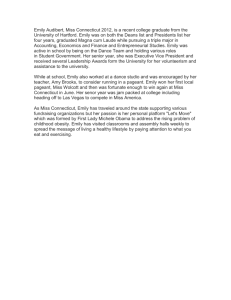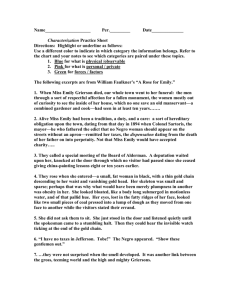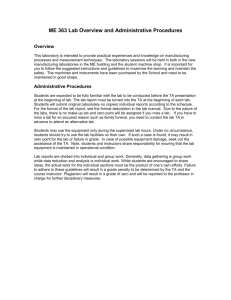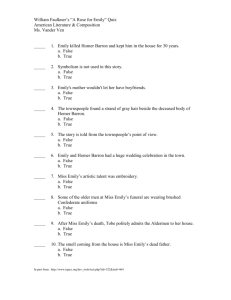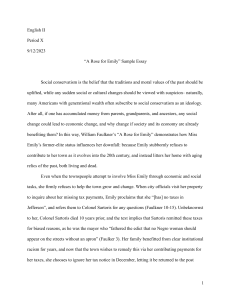Sub coor on W. Faulkner
advertisement
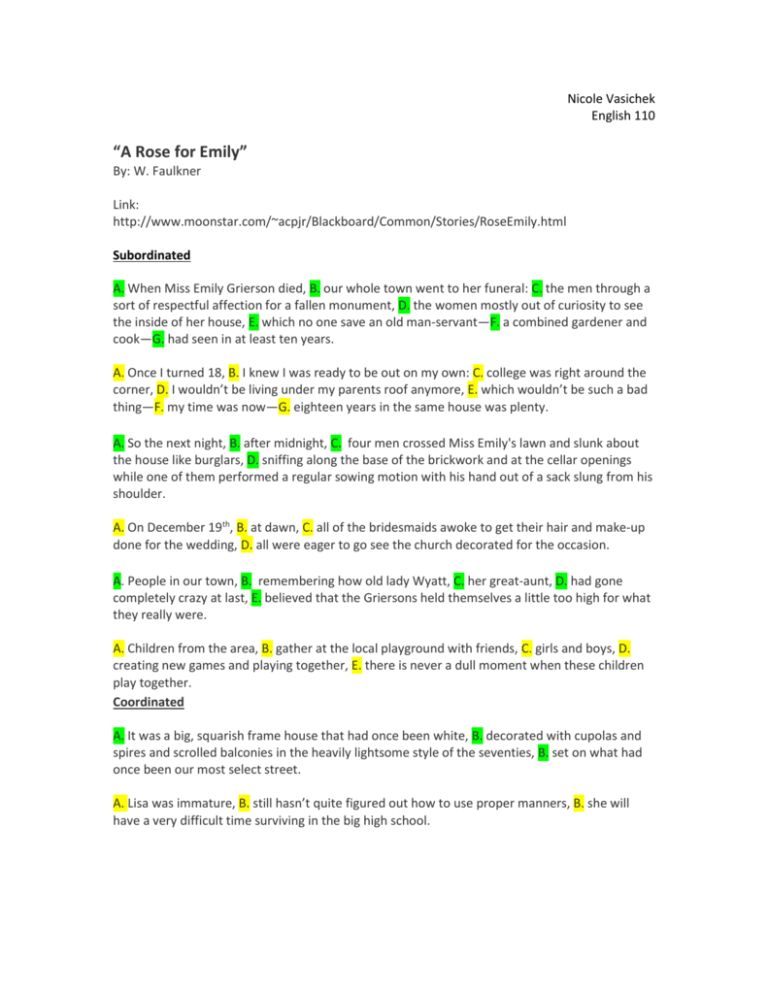
Nicole Vasichek English 110 “A Rose for Emily” By: W. Faulkner Link: http://www.moonstar.com/~acpjr/Blackboard/Common/Stories/RoseEmily.html Subordinated A. When Miss Emily Grierson died, B. our whole town went to her funeral: C. the men through a sort of respectful affection for a fallen monument, D. the women mostly out of curiosity to see the inside of her house, E. which no one save an old man-servant—F. a combined gardener and cook—G. had seen in at least ten years. A. Once I turned 18, B. I knew I was ready to be out on my own: C. college was right around the corner, D. I wouldn’t be living under my parents roof anymore, E. which wouldn’t be such a bad thing—F. my time was now—G. eighteen years in the same house was plenty. A. So the next night, B. after midnight, C. four men crossed Miss Emily's lawn and slunk about the house like burglars, D. sniffing along the base of the brickwork and at the cellar openings while one of them performed a regular sowing motion with his hand out of a sack slung from his shoulder. A. On December 19th, B. at dawn, C. all of the bridesmaids awoke to get their hair and make-up done for the wedding, D. all were eager to go see the church decorated for the occasion. A. People in our town, B. remembering how old lady Wyatt, C. her great-aunt, D. had gone completely crazy at last, E. believed that the Griersons held themselves a little too high for what they really were. A. Children from the area, B. gather at the local playground with friends, C. girls and boys, D. creating new games and playing together, E. there is never a dull moment when these children play together. Coordinated A. It was a big, squarish frame house that had once been white, B. decorated with cupolas and spires and scrolled balconies in the heavily lightsome style of the seventies, B. set on what had once been our most select street. A. Lisa was immature, B. still hasn’t quite figured out how to use proper manners, B. she will have a very difficult time surviving in the big high school. A. They rose when she entered—B. a small, fat woman in black, B. with a thin gold chain descending to her waist and vanishing into her belt, B. leaning on an ebony cane with a tarnished gold head. A. Everyone gasped when she walked into the church—B. a petite, uppity lady, B. dressed in designer clothing from head to toe, B. everyone from the small town watched every move she made. A. When we saw her again, B. her hair was cut short, B. making her look like a girl, B. with a vague resemblance to those angels in colored church windows—sort of tragic and serene. A. When I saw the Josie, B. she looked beautiful, B. new hair and make-up, B. she didn’t look remotely close to the girl that I knew in high school. Mixed Mode A. Alive, Miss Emily had been a tradition, a duty, and a care; B. a sort of hereditary obligation upon the town, dating from that day in 1894 when Colonel Sartoris, C. the mayor—he who fathered the edict that no Negro woman should appear on the streets without an apron—B. remitted her taxes, the dispensation dating from the death of her father on into perpetuity. A. In her prime, my grandmother was trendy, a hard worker, and a great mother; B. she raised four lovely children, giving them all that she had to offer, C. Her husband—worked everyday to support his family—B. my grandma did just fine holding down the house when he was away at work.
